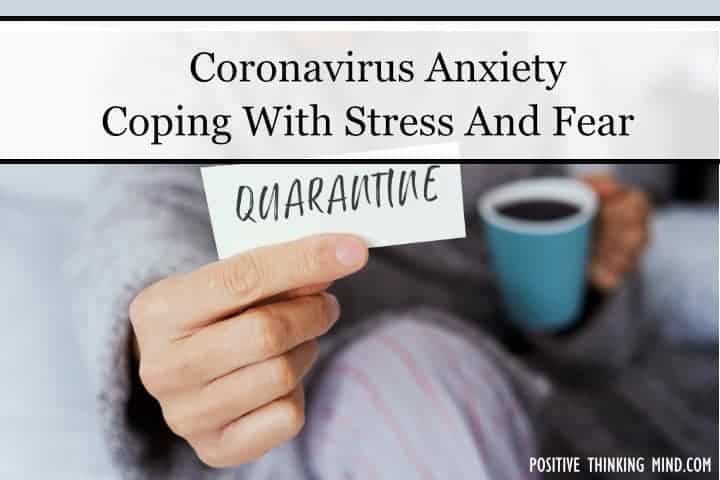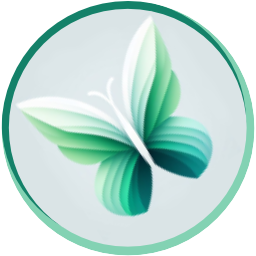Coronavirus Anxiety: Coping With Stress And Fear
If you are like me, you are already living with an anxiety disorder. Then COVID-19 enters the world, making your anxiety that much worse, and now you have coronavirus anxiety. You are not powerless, though; these tips can help you get through this tough time.
Your Coronavirus Anxiety, What’s Going On?
It’s a scary time in our world. A worldwide pandemic has hit, and many places have shut down. Some businesses and restaurants are struggling to reopen safely.
Some areas of our country luckily are keeping numbers low, but others have skyrocketing COVID-19 rates. Some wonder if this is all real, is this a hoax? Some are too proud and refuse to wear a mask while others are careful and go to extremes.
Our world is a stressful place right now, with all the headlines going across our TV screens and social media. You may be wondering, “When will this all end?”
For most of us, the hardest thing to handle is the uncertainty surrounding the coronavirus.
No one knows how long this will last, what impact it will have on our lives in the future or how bad things can get.
Because of all this uncertainty, it’s easy for us to get inside our already anxious minds and panic. Our lives spiral out of control, and we over catastrophize.

Stay Connected To Loved Ones
Health professionals recommend we practice social distancing to help stop the spread of the virus. By doing this, it also means cutting back on in-person socializing.
The problem with social distancing is, humans are hard-wired for connection. We are social beings.
If we are isolated, our anxiety and depression symptoms become worse, and may even impact our physical health.
Staying connected is so important during these trying times. Here are some best practices to help you.
- Don’t let coronavirus take over every conversation. Always talking about a stressful situation doesn’t allow you to relax. Instead, share stories, laugh, enjoy each others company and talk about other things you are doing in your lives.
- It isn’t easy to have in-person visits unless outside or wearing a mask. If you can, video chat, the face-to-face interaction will help your mental health while reducing your stress, anxiety, and depression.
- If anxiety and depression cause you to withdraw typically, make it a point to schedule regular Zoom dates and phone chats. Planning these activities forces you to remain active with family and friends.
- Social media can help you remain connected with friends and family. It would be best if you were mindful, though, too much can exacerbate your anxiety.
Stay Informed But Don’t Obsess
It would be best to stay informed about what’s happening in your area to follow the advised safety precautions. It’s crucial, however, to discern what is real from what is misinformation.
- Follow only trustworthy resources – Your local health authorities, the CDC, and the World Health Organization.
- Limit your update exposure – Social media and constant checking in with the news can become stressful. You’ll have more anxiety if you obsess over the next news update, which is counter-productive and compulsive.
- Fact check information – Check with Snopes, a reliable website that weeds out false information. Be careful what you share, and try to avoid rumors.
Take Care Of Your Physical And Mental Health
Staying active will help you relieve stress, calm your anxiety, and put you in a better mood.
Most gyms may be closed, but you can still find ways to exercise. Here are a few ways to remain active.
- Go for a walk
- Hike
- Look for exercise videos online
- Yoga
- Kayaking
There are so many things you can still physically do to better your health. You should also maintain your mental health by using meditation exercises for anxiety relief and learning to handle your negative thoughts positively.
Be Mindful
When you feel anxiety, remember to be mindful. There are many different things you can do to help ease your coronavirus anxiety.
Many grounding techniques for anxiety, such as the 5-4-3-2-1 grounding exercise, will help calm your nerves. You can also find a grounding object such as a stress ball or use self-talk or positive affirmations.
Find what works best for you, and remember to be mindful and focus on your emotional self-care.
Take A Virtual Tour
Most museums may be closed right now, and traveling to a national park may be out of the question. But what about a virtual walkthrough?
Over 500 museums and art galleries have partnered with Google Art & Culture to be available as virtual tours.
There are many options, so head on over to Google Arts & Culture or see the top curated list.
Even the U.S. National Parks are online and virtual, where you will learn fun facts from park ranger tour guides and see secluded areas that most people never get to see.
Google Arts & Culture has a lot to offer. You can visit The Hidden Worlds of the National Park, an interactive documentary and exhibit.
The Takeaway
We’re going through a moment in time with a global panic, which causes great anxiety, and things seem to feel out of control.
You deserve time to relax, moments of gentleness, time to be carefree, and without anxiety.
I hope these resources will help you get your mental health back on track.
It’s okay to be anxious at times, and feel what you are feeling, and processing your anxiety through healthy means and finding support is the best way.
Remember to keep breathing, using deep breathes. Enjoy your virtual tours and digital hikes!
